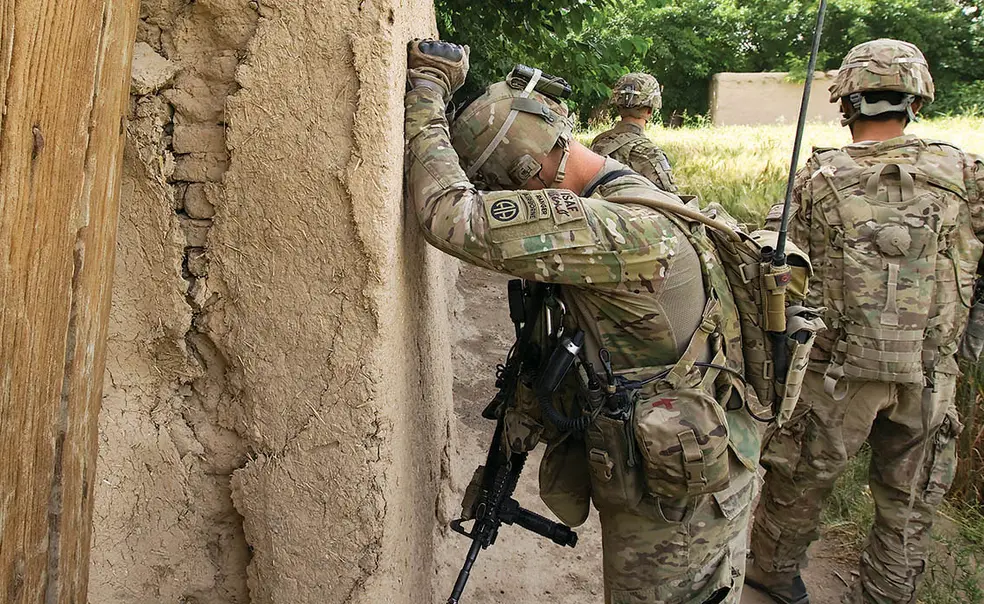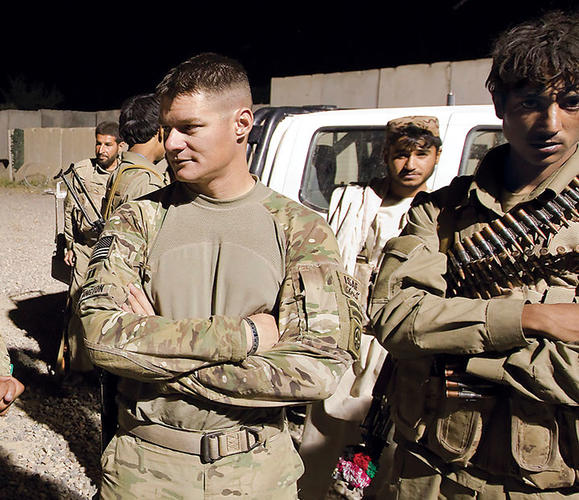Another Kind of Battle
Army major at Wilson School helps his Afghan interpreter get a U.S. visa
Army Maj. Mike Kelvington has served six deployments in Afghanistan and another in Iraq. But he was fighting a different battle when he enrolled in the Woodrow Wilson School’s M.P.A. program a year ago: to win visa approval for his Afghan interpreter, a close companion, to come to the United States.
Kelvington said the interpreter — who uses the pseudonym Dave — was “much more than someone who interpreted words.” Kelvington served as a platoon leader and company commander, and in a December 2015 Washington Times essay he wrote that he “needed a trusted ally in making life-or-death decisions in our fight against the Taliban.” During six years working with the U.S. military, Dave was exposed to firefights while working with American troops and offered valuable insights into relations between local Afghan leaders. But when the bulk of American forces were withdrawn from the country in 2014, Dave and other Afghans lost their jobs.
Since losing his position, Dave has taken part-time work and moved to another part of the country to assure the safety of his wife and two young children.
Kelvington has been fighting to help Dave and his family find a way out of Afghanistan, where he is known among the Taliban as one who assisted the United States. Finally, in August, good news arrived: Dave and his family had been approved for a Special Immigrant Visa (SIV) under a program approved by Congress in 2009 to permit Afghans who served the U.S. government for at least a year to immigrate to the United States. The family is expected to arrive in the United States and settle in Ohio by the end of the year.
“He basically put his life on hold to support the U.S. government and the Army,” Kelvington said. “The level of passion and emotion that was prevalent in his work ethic was unlike anything I had experienced before.”
Kelvington continues to work to maintain and strengthen the visa program. About 13,000 Afghans — many of them interpreters — are at some stage of the SIV-application process, a government spokeswoman said. Over the last three years, more than 27,000 Afghans and their families have received SIVs; the program is reviewed annually by Congress.
Kelvington has contacted the offices of 53 congressmen and senators from 17 states; his Wilson School classmates and professors have also reached out to Washington officials.
“It’s important that we continue to raise awareness,” said Kelvington, who said his views on the issue are his own and do not reflect those of the Army. “There’s no immigrant who’s going to love this country more than someone like Dave.”













No responses yet